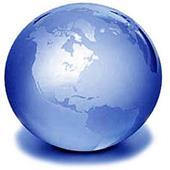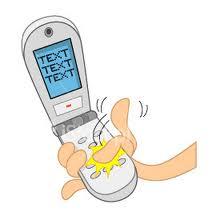
![]() Kathryn Stride
Kathryn Stride
It sounds like a simple question, but it is actually very difficult to give an exact number.
Specialists from the National Virtual Translation Center and The Linguistic Society of America say that there are about 6800 – 6900 spoken languages.
 But before we can start counting, we have to consider some details:
But before we can start counting, we have to consider some details:
What can be defined as a separate language? Can you always understand the difference between a language and a dialect? Should dialects even be added to the general number? How many people must speak the language for it to count? Is it obligatory for a language to be written?... The list can be very long.
In fact, from time to time different languages disappear, because over time people speaking them die out or languages adapt and join with others, and therefore many become extinct.
So again, “How many languages are there in the world today?”
Well at this moment in time, according to The Ethnologue organisation in the 17 edition (2013), there are approximately 7105 distinct spoken languages and dialects in the modern world.
So....which one are you practicing?!

![]() Kathryn Stride
Kathryn Stride
Really there's no definite answer to this question as everyone is different but as humans we are capable of extraordinary things!
I recently met someone who has never learnt or spoken a single word of Spanish in his life, he went to Madrid for 4 months to teach English and lived with a Spanish family whilst he was there and after these 4 months he is almost completely fluent in Spanish! Amazing just 4 months and now he has a new life skill!
So it seems if you can immerse yourself 100% in a language you can learn it in around 4 months (so people may learn faster and others slower).
On the other hand you can still learn the language without necessarily going to an academy/classes or even immersing yourself 100% but of course you need to be patient and you need to practice! Practice makes perfect and that's why we think LanguageLinker is so great :0)

![]() Kathryn Stride
Kathryn Stride
If it wasn't already difficult enough to learn English, a new study shows that native English speakers are now using text-speak (abbreviated text) in verbal communication as well!
Abbreviations like 'LOL' meaning laughing out loud and 'jel' meaning jealous and, 'soz' meaning sorry are amongst the most popular. JP Davison the author of the book 'Planet Word' said 'language is something that is constantly evolving' 'with people trying to fit as much information into 140 characters that words are getting shortened'
 These abbreviated words and the slang used in every day conversations cannot be found in a dictionary so it is complete gobbledygook to non natives and is not going to make learning English any easier!
These abbreviated words and the slang used in every day conversations cannot be found in a dictionary so it is complete gobbledygook to non natives and is not going to make learning English any easier!
Not only are these words being used in verbal communication, but because of this many British words are being lost as they are no longer being used.
©2024 LanguageLinker.com · All rights reserved